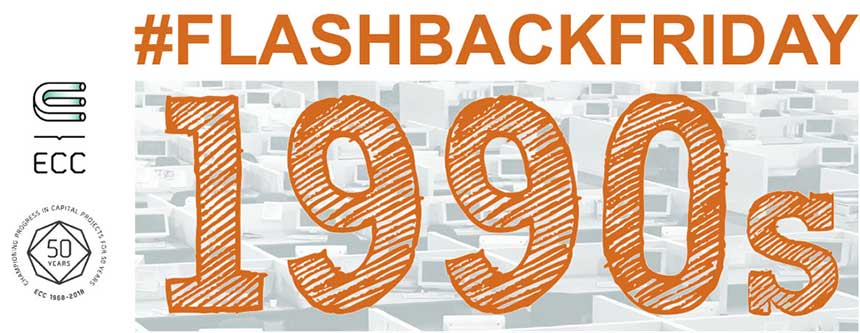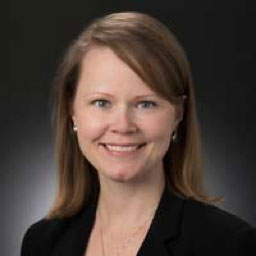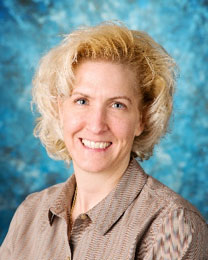#FLASHBACKFRIDAY – Future Leaders Look Back on the 1990s
August 17, 2018
by Katherine Maurin & Eric Moore (Communications Team)

Join the ECC Future Leaders as we continue our journey through the last five decades of ECC. Last week, we looked back at the 1980s - a decade marked with technological advancements. This week, we are excited to discuss the 1990s, a decade that brought us changes on a global stage with both political and business implications. For many of the current Future Leaders, the 1990s was the decade where we “grew up” – and the decade was full of awesome memories. Some remember rollerblading to Blockbuster while wearing a fanny pack and listening to a Sony Discman, while others recall eating Dunkaroos while playing Nintendo 64 or watching Full House. Who can forget hearing “Ice Ice Baby” and “the Macarena” countless times a day, or that special announcement of “You’ve Got Mail” after logging on the America Online dial-up connection? Some of us collected Beanie Babies, Trapper keepers and slap bracelets, but we all look back at the cherished memories we collected in the 1990s.
The ECC community who were active in the industry recall that the decade began with a spike to the Oil Price caused in large part to the Iraqi invasion of Kuwait in 1990. The decade bore new technologies including hydraulic fracturing combined with horizontal drilling to serve as a catalyst of the Shale Revolution. This was also the decade that saw the launch of the Hubble Space Telescope, the cloning of Dolly the Sheep, the debut of the World Wide Web and the birth of e-commerce on the shoulders of Amazon and eBay. The Personal Digital Assistant started to replace the day planner and the 2G cellular phone technology with SMS “texting” slowly entered our daily lives. The decade included a global economic crisis resulting in plummeting markets, but in 1999, the Dow Jones Industrial Average closed above the 10,000 mark for the first time. This all set the stage for the world to nervously await the impact of the possible effects of the “Y2K bug” in computers.
We are very fortunate for this week’s contributors – Julie Lambert, 2018 ECC Conference Chairwoman and Tracie Griffitt, Vice Chairwoman. Tracie and Julie met in 2009 when they were both in the Future Leader program. When reflecting on their time within the Future Leader program, they mentioned that neither of them could have anticipated at the time that they would be leading the ECC Board together almost a decade later!


These are two women who are very well respected in the industry and are both making a significant impact across the ECC community and have a strong track record on mentoring the Future Leader community. We had a chance to ask them a few questions about the industry in the 1990s, read their responses below.
FUTURE LEADERS: Can you share a few memories from the industry in the 1990s including your work life, your assignments, company culture, etc.?
Tracie Griffitt (TG) In the 1990s, we were just starting to use 3D model tools more robustly on projects and emails were the main form of communication. Everyone was worried about the impact of Y2K on office/company computer systems and the concept of global workshare/global project delivery, was still very much in its infancy. The Engineering Functions were “hard-wired” into separate Functional groups (that aligned with technical University graduate degrees...i.e. Mechanical Engineering, Electrical Engineering, etc.), and there was not a lot of opportunity for “cross-pollination” between technical functions.
At the first Engineering firm I worked for – I was actually given a “test” by the overall Lead Engineer, to ensure I understood and could solve problems related to fluid dynamics and heat transfer…before I could work for him as a junior Engineer. We still relied heavily on 2D AutoCAD drawing prints as design deliverables (I remember getting chastised for not understanding how to properly fold a “D-size” AutoCAD print….and spending many hours digging through our Client’s Document Control library, to check-out manual D-Size “master” vellum drawings that we had to update and revise, as part of the revamp project I was working on). I also learned as a young Project Engineer – that senior Piping Designers did not appreciate if you picked-up and “fiddled/played with” their electric erasers, eraser crumb removal brushes or other drafting tools that lay on their big drafting boards when you stopped-by their cubes to ask them a question! In the 1990s I served as a Field Engineer for a bio-pharmaceutical expansion project, a Field Engineer/Mechanical Engineer for a packaging line expansion at a brewery, a Lead Mechanical Engineer for a compressor station/pipeline installation project, and a Project Engineer for an environmental compliance project at a California Refinery.
Julie Lambert (JL): After I graduated from college, I moved to Houston and started working for an EPC contractor. On my first day at work, it turns out that no one had ordered a computer for me yet, so I spent the first couple of weeks reading hard-copy manuals of our engineering practices and guidelines! During my time there, I had the opportunity to work on a variety of refining and petrochemical projects doing front-end and detailed engineering for projects in South America, the Middle East, Asia, and the U.S. However, I was home-office based and didn’t get the opportunity to spend much time in the field. My work consisted of hydraulics, relief valve sizing, P&ID development, and later, process design for ethylene projects. Like Tracie, I spent a lot of time looking at 2D drawings and marking them up with my red and green pencils! I learned a lot during this time and worked with some fantastic people.
FUTURE LEADERS: Since your career began, what within our industry culture has changed for the better? What has changed for the worse?
TG: I think the improvements in technology and communications have certainly allowed us to share work globally and benefit/improve our ability to “tap into” subject matter experts, from a global resource pool, as well as enhance our ability to share information more effectively. However, I think the rapid integration of technology has allowed for continued “tinkering” to occur on projects, and the ability to rapidly make changes – has hampered the team’s ability to remain cognizant of the impacts of change to the overall project delivery process and has adversely affected the team’s ability to remain focused/drive the project, against the approved scope/sanctioned funding (since making changes is so easy in today’s electronic world…control of change seems to be more challenging)
JL: I think this industry has made great improvements in diversity and inclusion over the last 20 years, but we still have room for improvement! When I began my career, it was normal to me to be the only female in the conference room. Nowadays, I don’t find myself in those situations quite as often as I used to. It’s great to see all kinds of diversity in the workplace and I think we are better off for it.
One thing that has changed for the worse is that I think we’ve lost the benefit of face-to-face contact in today’s world of text messaging, instant messaging, and email which we tend to overly rely upon. The easiest and fastest way to communicate isn’t always the most effective, and I think our project and business challenges can often be addressed more successfully by just having conversations!
FUTURE LEADERS: What advice would you give to the Future Leader community of today?
TG: Always remain open and flexible to take on new assignments (even things you didn’t think you were interested in, or matched your perceived ”perfect career path” plan)…parallel learning assignments and being exposed to different roles (outside of your intended career track), can vastly augment your skills and give you adjunctive “tools in your tool kit” that can help expand and enrich your decision-making abilities.
JL: As you navigate the course of your career, seek out mentors who can share their experiences with you and use as a sounding board throughout your career. I think it’s important to be open to new experiences and career paths that you might not have envisioned for yourself, and mentors can help you think through what different experiences may provide, even if the experience doesn’t line up with the career you may have envisioned. As a chemical engineer, I can absolutely say that I never imagined that I would spend more than a decade in various Procurement roles and now be leading a Procurement organization, which has been a very fulfilling and rewarding experience.
Thank you to Tracie and Julie for their insightful comments on the 1990s. As we wrap up this Flashback Friday, we leave you with a summary of some of the key statistics and events that defined the decade.
KEY STATISTICS:
- $/Barrel of Oil: Low $11.91 (1998); High $23.19 (1990)
- Minimum Wage: $3.80 (1990); $5.15 (1999)
- Average cost of a new car: $9,437 (1990); $17,518 (1999)
- US Population: 248,709,873 (1990 Census)
KEY EVENTS:
- 1990: After the fall of the Berlin Wall in 1989, Germany was reunited after 45 years of separation.
- 1991: Cold War ended with the fall of the Soviet Union on Christmas Day.
- 1993: The World Wide Web was invented and Nokia sends text messages between mobile phones. The European Union is ratified.
- 1994: Channel Tunnel opened, connecting Britain and France.
- 1997: Microsoft saved Apple from the brink of bankruptcy when Bill Gates gave Steve Jobs $150 million investment.
- 1999: US spent $100 billion to prepare for Y2K, prep included a Senate “Special Committee on the Year 2000 Technology Problem.”
Notable ECC Conference Themes & FOCUS AREAS:
- 1999 Creating Optimum Business Value Through Global Contracting Strategies
- 1996 Best Practices for Executing Projects Globally
- Delivering World Class Cycle Time
- Improved Project Performance Through Integrated Contractor and Vendor Alliances
- Global Projects Management, Finance & Resources
- Asia Pacific Project Execution Experience
- 1995 Applying Advanced Methodology to Improve Project Execution
- Modularization in the Process Industry
- Innovative Construction Practices
- 3-D Models for Life Cycle of Plant
- Alliance and Pay-for-Performance Contracting

